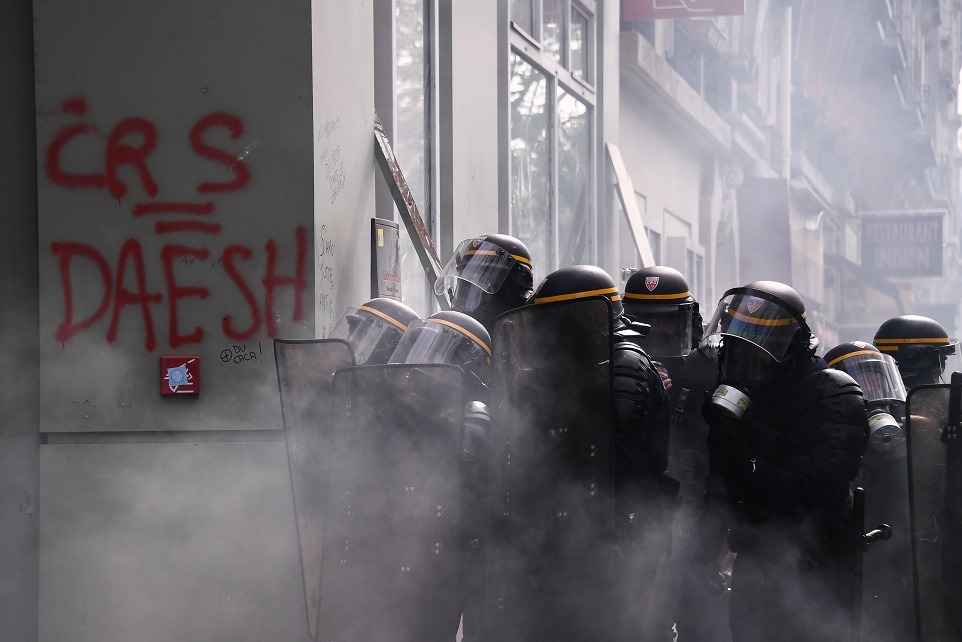Noting that ISIS is a major security dilemma particularly for the Europeans, Mehdi Fathi said one of the reasons for the escalation of clashes in Syria was the dispatch of nationals of different countries, especially France, Germany, etc. to Syria. Unfortunately, at that time, the European security forces did not impose strict requirements on the exit of these people and their travel to Syria. As a result, they would enter Syria and join the terrorists. These terrorists committed many crimes in Syria and Iraq in the past years.
The Americans claim that they have arrested these forces but European countries do not allow them to enter Europe. Even citizenship of some of these people has been revoked. This has turned into a predicament for the US government and it doesn’t know what to do with these people.
Fathi added: “It seems that the Europeans are obstructing the process just as they closed their eyes to the exit of these forces from Europe and their departure to Syria or even facilitated their departure to participate in the disintegration of Syria. With regards to the terrorist incidents that took place in Germany and then in France, Belgium and Britain, the Europeans consider ISIS a terrorist threat against their security.
“Europe sees these people as a security threat and does not even want to accept them on its soil,” he said. Of course, their treatment is inhumane and not following international standards, because they can accept these people and then put them on fair trial, but these governments have preferred not to accept them anymore and delegate the bitter consequences of their entry into Syria and their subsequent arrest and punishment to other governments.
The European expert on the dangers the US has created for Europe by withdrawing from the Intermediate Nuclear Weapons Treaty also said that the US decision could be considered in line with the policies Trump adopted during his presidency, including the US pullout from treaties signed by the previous governments.
He added: “It seems that the Americans are trying to rebuild and renovate their nuclear weapons and somehow exert their superiority in the international system over other countries such as Russia, China and other states to obtain new power in terms of deterrence.
Fathi added: “The Americans have accepted that the former bipolar world is moving towards a multipolar world, and are seeking to include China in such treaties. They say if they are to sign a new deal in the future the Chinese would also join the new INF (Intermediate-Range Nuclear Forces Treaty).
He said that the US decision to withdraw from the INF appears to have great dangers for Europe. Since 1987, the number of missiles with 500 to 5500-kilometre ranges has been reduced in the European soil and security has increased in Europe. Europeans are very sensitive about losing some of what they had achieved in the last years of the Cold War. At the same time, they feel they are in danger of a new arms race between the United States and Russia and believe that the new arms race, such as the Cold War era, will increase the danger and threat to European countries and that their security may be compromised and weakened.
The Europeans feel the danger that the nuclear threat against the territorial integrity of European nations may increase, the European expert added. So they want the US and Russia to go back to this deal. Although the sharp edge of their attacks and criticisms is directed at Russia, they also feel threatened by the United States. Europeans have divisions with the US within NATO. The US threatens that Europe must pay more for its security, and Europe for its part is critical of certain US policies.
“If the United States, Russia and perhaps China do not join the new treaties, there will be a new arms race in the world that could extend to Europe. As the US Secretary of Defense said they see China as a major threat and assess that Beijing can become a great power in the future, extending these competitions to East Asia so that as the US Secretary of Defense put it, it is possible to deploy these weapons in Asia.
Fathi added: Europe, citing a weaker position in terms of nuclear weapons than the United States and Russia, relies heavily on Article 6 of the NPT, which states each of the Parties to the Treaty undertakes to pursue negotiations in good faith on effective measures relating to cessation of the nuclear arms race at an early date and nuclear disarmament. So the Europeans want the INF to be restored in a new way and the START Treaty, especially the new START 2020, to be extended for many years.
He said: “If the world changes so that the Americans pursue their interests, the Russians and the Chinese pursue their policies and their interests, it is likely that given the strategic partnership between Germany and France, the Europeans too would join the process and move in that direction to defend their security against the policies of other major powers. This could intensify the arms race for European countries. In particular, in the current situation the world’s major economies, both in the US and in Europe are suffering from economic problems; far-right parties and populists are seeking power… This process can pose a threat to international security, global security, international laws and even UN ratifications.










0 Comments